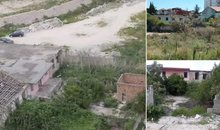
 Flash News
Flash News
The body of a 29-year-old man in Klos is found after 6 days
Arrested a few meters from SPAK, the Special Prosecution seeks 17 years in prison for the drug 'boss'
Giro D'Italia starts today, here are the road axes that will be blocked in Tirana from 13:00-18:00
Who is the new Pope?
Pope Leo XIV greets the faithful for the first time in St. Peter's Square

Alfred Lela
Prime Minister Rama has suspended diplomatic relations with the Islamic Republic of Iran, ordering the removal of personnel and the release of the Iranian embassy on "Mustafa Matohiti" street.
The reason has already been articulated: the Iranians have entered Albania's cyber systems, stealing data and breaking the security of the online infrastructure network. After doing this, they have in their hands information of high sensitivity about the affairs of the state, the officials of the Republic, but also information that damages or exposes the privacy of Albanian citizens, that is, of each one of us.
The official propaganda has overturned this decision of the Prime Minister, and this has come for several reasons.
First, that Rama likes, where he no longer exists, to play in the big chessboard of international politics;
secondly that we are a country where the 'spy game' is such a popular sport and,
thirdly, that a government swimming in so many scandals of its own making, a case for counter-scandal cannot escape it.
Confused, as we often are in such socio-psychological vines, many of us have forgotten that the Iranians were not the first to spill the bucket full of data on the citizens of Albania. The first Iranians were, in fact, the same ones who today have turned into the most fervent anti-Iranians.
I'm talking about the patronageists, a system of guardianship, espionage, stalking and extortion, set up by the ruling party, whose boss is, according to rumors, the biggest anti-Iranian after Ronald Reagan, the man himself, Edi Rama.
Patronageists were a large net thrown over the Albanian electoral body, a kind of electoral STAS, which absorbed the beliefs and political souls of the citizens of the Republic, and assigned them a 'guardian' or shadow, who "followed" them with the final goal is the alienation of political will. This was perhaps the final step in an even larger, even older operation, which involved first the blatant use of state administration, the intimidation of voters by local strongmen, and, perhaps with the milder intervention of to this electoral slaughterhouse, buying votes directly, giving money in exchange for a cross on the side of the left-wing candidate on election day.
Infrastructures, both formal and informal, are, of course, part of the social theater. The second, the informal ones, exist as parallels, sometimes awkward and sometimes secret, of the formal ones, and range from lodges, clubs, covenants, conspiracies, to paramilitary groups. Every country has them, from Argentina to America and Singapore. What does not happen in any country is their public promotion. This is agreed upon in democracy. The annexes of frustration or social convictions, not publicly accepted, should be allowed with style, but should not be baptized in the wide sphere of public play.
Edi Rama broke this rule. Instead of even pretending to condemn the patronage structures, he stood up for them, expressing pride. So it took them out of the informal infrastructure and made them part of the public superstructure. Rarely in the history of nations has it happened that the head of a state commits such transgressions. For an impact on the electoral infrastructure process, on a smaller scale and still tentative, Richard Nixon resigned as president of America, in the scandal known as Watergate.
Edi Rama took his patronage and threw it in our faces, both the weak ones of Albania, and the representatives of the colossal country, who came from the Watergate of the original electoral sin.
Life went on happily with beista concerts and other ritaoras in the Alba-American Republic, until a second phase of fatherhood and bastardy. An industrial data leak, released by the government's ANA, made public personal details, from identity cards to addresses and salaries, of everyone living in Albania.
After acquiring a technique of public communication, according to which the best way to extinguish a big scandal is to take its ownership (owning it up), Edi Rama made another somersault, in the logic of the state, by took the evil operation to Phase 2. He came out and said that it will be us, that is, the state, who will make public the salaries of the citizens of the Republic.
The opposition vented the air of denunciations, the people did not go public this time either, foreigners put their ears in the wool and life in the regime of the first Iranian and the next ayatollah, the good Albanian, but confused in the dizzying laws of power, Edi Rama.
Those who do not hold their breath in the joy that Albania, this 'tomb of empires', met tooth for tooth with the hated theocratic regime of Iran, should think a little.
The Iranians did what all foreign powers do with adversaries. What we should not do is not allow the Albanians to treat us like ayatollahs. This is our duty, of all of us.
The embassy ayatollahs left and, as far as I'm concerned, never came back, but they weren't the first Iranians. Only the next one. Not the last at all.
Latest news

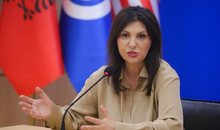

IdentiTek offices open on Saturdays
2025-05-09 13:03:13
Will artificial intelligence help us talk to animals?
2025-05-09 12:55:58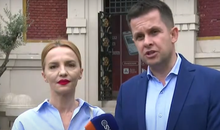

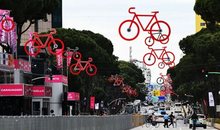

Rama's fourth act: between Brussels and the Mafia
2025-05-09 12:12:47
The body of a 29-year-old man in Klos is found after 6 days
2025-05-09 12:01:27
Berisha: After May 12, this opposition will become the majority in Albania
2025-05-09 11:52:37
Leo XIV celebrates his first Mass as Pope
2025-05-09 11:42:34

Spaho denounces: SP candidate in Pogradec gives 100 thousand lek for the vote
2025-05-09 11:27:26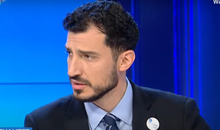
Mustafaj: Proud of the worthy campaign of the DP
2025-05-09 11:22:20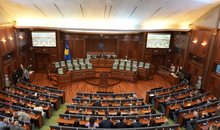
Constitution fails again, Kosovo still without a new Assembly
2025-05-09 11:06:55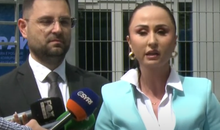





"Votes have no price", the US embassy in Tirana 'slaps' Rama
2025-05-09 10:06:49

Two young men arrested for supplying criminal groups with firearms
2025-05-09 09:45:19




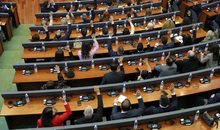


Foreign exchange/ How much foreign currencies are bought and sold today
2025-05-09 08:19:18
The gift that Berisha gave to Rama 'live'
2025-05-09 08:13:51
3 signs that show you are spiritually protected
2025-05-09 08:05:39

Bars can't hold back anymore, start increasing coffee prices, 4.7% more in April
2025-05-09 07:46:49

Horoscope, what do the stars have in store for you today?
2025-05-09 07:22:06
Unstable weather, afternoon brings rain
2025-05-09 07:01:29
Morning Post/ In 2 lines: What mattered yesterday in Albania
2025-05-09 06:45:46

How did LaCivita change the DP campaign? Berisha: He studied the opponent
2025-05-08 22:49:51

David defeats Goliath
2025-05-08 22:15:50

Journalist: There are SPAK infiltrators in party headquarters
2025-05-08 21:55:15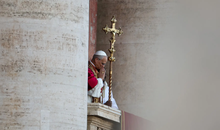
Who is the new Pope?
2025-05-08 21:48:13
Berisha finally reveals when he will retire from politics
2025-05-08 21:33:46


LaCivita in Lezha: Albanians will fire Edi Rama from his job
2025-05-08 21:11:20


Berisha: LaCivita chose us because he believes in Reagan's program
2025-05-08 20:48:40
He rejected America to serve Pogradec, Genti Çela tells about life in "Elevate"
2025-05-08 20:26:28



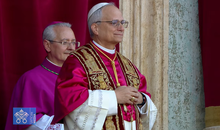
Pope Leo XIV greets the faithful for the first time in St. Peter's Square
2025-05-08 19:29:33




Photo session with LaCivitta in Tirana: For Great Albania
2025-05-08 18:40:18
Source: DASH decision a personal victory for Berisha
2025-05-08 18:30:10
Take off those crazy glasses and see where you've taken him?
2025-05-08 18:02:47
LDK files criminal charges against members of the incumbent Government
2025-05-08 18:02:00

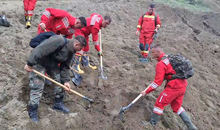
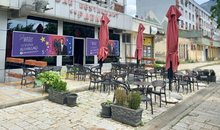




BIRN analysis: Tirana, the determining district for the future majority
2025-05-08 16:04:03




Chris LaCivita's contract with the DP, Berisha: 100% correct and clean
2025-05-08 15:11:11

"These are the peak days", Berisha reveals when he will travel to the USA
2025-05-08 14:45:25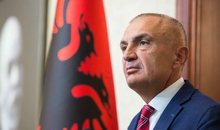


Endless boxes with filled-in ballots, DP demands separation of votes from Greece
2025-05-08 14:11:12


Photo/ Who are the 3 associates of Talo Çela arrested in Dubai?
2025-05-08 13:37:09
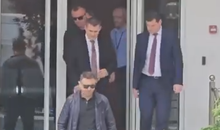
Hetimi për krimet zgjedhore, Altin Dumani zbarkon në Prokurorinë e Shkodrës
2025-05-08 13:06:21
DASH paves the way for Berisha, Alizoti: Great news on the eve of Great Albania!
2025-05-08 13:03:48

"Freedom works", DP welcomes the US position
2025-05-08 12:48:07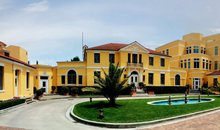
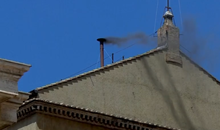
Black smoke rises from the Sistine Chapel, the Vatican still without a Pope
2025-05-08 12:26:18